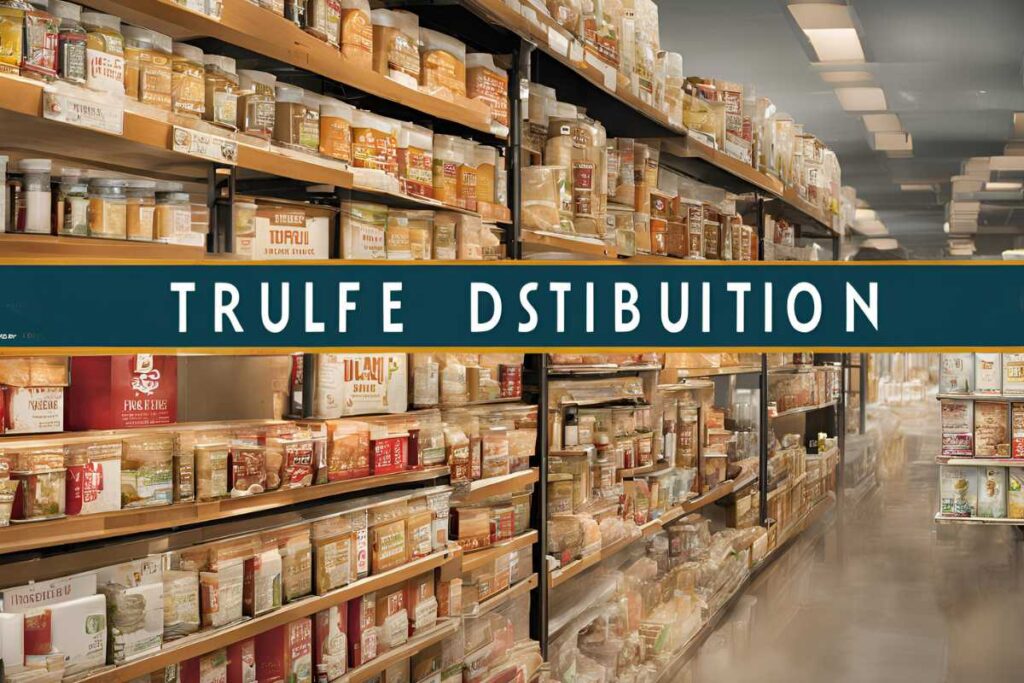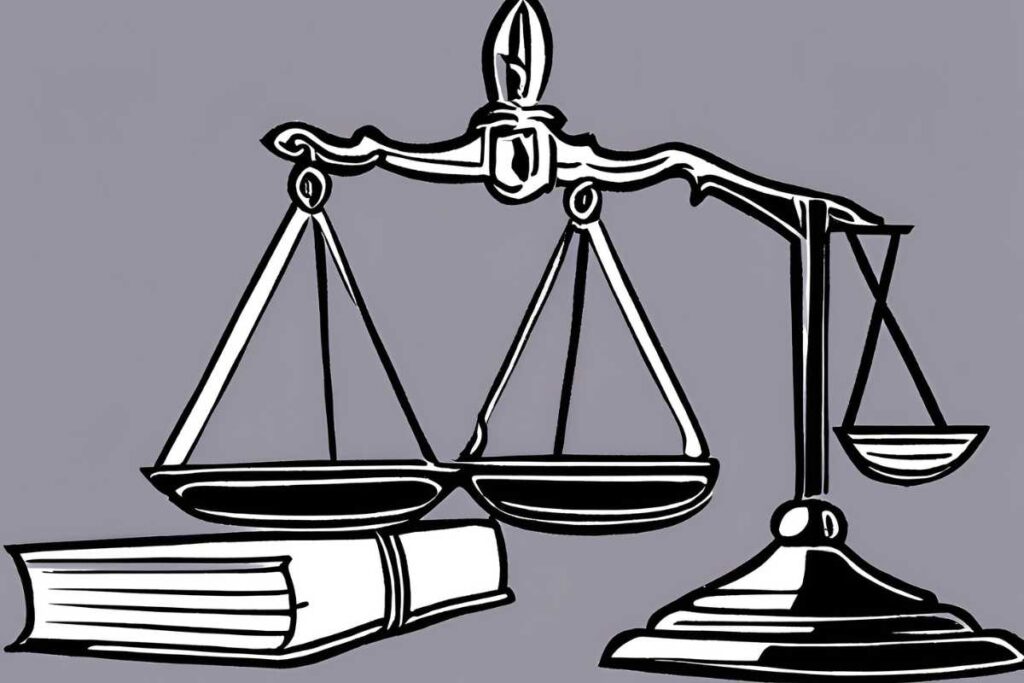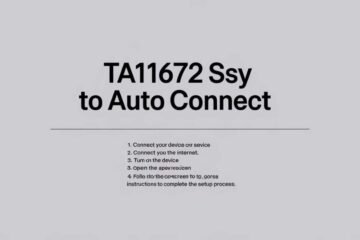- The Key Players in the Trulife Distribution Lawsuit
- Allegations and Claims in the Trulife Distribution Lawsuit
- Timeline of the Trulife Distribution Lawsuit
- Resolution and Outcome of the Lawsuit
- Conclusion
- FAQs
- What is the Trulife Distribution lawsuit about?
- How did the family connection between NPI and Trulife impact the lawsuit?
- Why was the Trulife Distribution lawsuit dismissed?
- What role did intellectual property play in the lawsuit?
- Was the case settled or dismissed?
- How can companies avoid legal issues like those in the Trulife Distribution case?
- What are the consequences of deceptive trade practices in the distribution industry?
- Did the lawsuit impact Trulife Distribution’s operations?
The Trulife Distribution lawsuit has become a major topic of discussion in the distribution industry. Alleging deceptive practices and unfair competition, the case offers a fascinating insight into the intense rivalry within the distribution world.
This lawsuit centres around Trulife Distribution, a company operating in the competitive arena of nutritional products distribution, and Nutritional Products International (NPI), it’s rival in the same industry.
The legal battle highlights several core issues, including allegations of unethical behavior, deceptive trade practices, and corporate espionage.
This article will delve into the specifics of the Trulife Distribution lawsuit, the key parties involved, the timeline of the case, and the broader impact on the distribution industry.
Understanding the legal implications of this case can help businesses and individuals navigate similar challenges in a fiercely competitive market.
The Key Players in the Trulife Distribution Lawsuit

Who is Trulife Distribution?
Trulife Distribution was founded in 2019 and quickly became a competitor to Nutritional Products International (NPI).
Focusing on helping international nutritional brands establish a presence in the U.S. market, Trulife Distribution provides a full suite of services, including sales and marketing, distribution, and market entry strategies.
The company’s mission is to create a U.S. headquarters for foreign brands, similar to NPI’s business model but with a more modern approach.
Despite its relatively young age, Trulife Distribution has quickly gained traction in the market. However, its rise to prominence has not been without controversy.
In May 2022, NPI filed a lawsuit against Trulife Distribution, accusing the company of deceptive business practices. These allegations became the central focus of the ongoing legal dispute.
Nutritional Products International (NPI)
Founded in 2008, Nutritional Products International (NPI) is a well-established player in the distribution sector. Based in Florida, NPI serves as the U.S. headquarters for several international nutritional brands looking to expand their market share in North America.
Under Mitch Gould’s leadership, NPI has built a reputation as a leading distributor of nutritional products.
The lawsuit filed by NPI against Trulife Distribution revolves around the claim that Trulife misused proprietary business information and used deceptive tactics to lure clients away from NPI.
The case raises important questions about business ethics, intellectual property, and the competitive practices often at play in the distribution industry.
Allegations and Claims in the Trulife Distribution Lawsuit

Key Allegations of Deceptive Trade Practices
The Trulife Distribution lawsuit centres around several serious allegations of deceptive trade practices.
According to the complaint filed by NPI, Trulife Distribution engaged in a series of actions designed to mislead clients and divert business from NPI to their own company. The main allegations include:
Misuse of Proprietary Information
NPI claims that Brian Gould, the CEO of Trulife Distribution, used proprietary case studies from his time at NPI to attract new clients. The case studies, which NPI had developed over years of business, showcased the company’s successful track record.
Deceptive Communication Practices
Another key allegation revolves around emails designed to appear as though they were coming from NPI. These emails allegedly intended to confuse NPI clients and persuade them to work with Trulife Distribution.
These allegations highlight the intense competition in the distribution industry, where companies often vie for the same clients.
The lawsuit underscores the ethical challenges faced by companies in highly competitive markets.
Family Dynamics in the Lawsuit
An intriguing aspect of the Trulife Distribution lawsuit is the family connection between the two companies. Mitch Gould, the founder and CEO of NPI, is the father of Brian Gould, the founder and CEO of Trulife Distribution.
This family dynamic adds a personal element to the case, as the lawsuit involves business and family disputes.
The involvement of family members in both companies makes the case even more complex, raising questions about personal loyalty, ethical boundaries, and the potential for conflicts of interest within a business relationship.
Timeline of the Trulife Distribution Lawsuit

Key Dates and Events in the Legal Battle
The Trulife Distribution lawsuit has had several key moments throughout its proceedings. Understanding the case’s timeline is crucial for grasping the broader implications for the industry. Here is a breakdown of significant events in the lawsuit:
- May 2022 – NPI files a lawsuit against Trulife Distribution in a U.S. District Court in Florida, alleging deceptive practices and misuse of proprietary information.
- June 13, 2022—The judge dismissed the complaint, allowing both companies to continue their operations without further legal interference. This ruling ended the immediate legal battle, but the public scrutiny surrounding the case affected both companies.
- Ongoing Impact—Although the lawsuit was dismissed, the Trulife Distribution lawsuit continues to have lasting implications for the reputations of both companies, as it has brought attention to their competitive strategies and ethical practices.
Resolution and Outcome of the Lawsuit
What Did the Dismissal Mean for Trulife Distribution?
The dismissal of the Trulife Distribution lawsuit was a significant turning point for both companies. While the case was dismissed due to insufficient evidence, the allegations of deceptive practices left a cloud over Trulife Distribution’s reputation.
This case served as a cautionary tale for other companies in the industry, emphasizing the importance of ethical business practices and transparent communication with clients.
The dismissal allowed Trulife Distribution to move forward with its operations.
However, the negative publicity generated by the lawsuit meant that Trulife Distribution would need to work hard to rebuild its reputation and prove its commitment to ethical business practices.
Impact on the Distribution Industry
The Trulife Distribution lawsuit also had broader implications for the distribution industry. It highlighted the need for companies to adopt clear ethical guidelines and avoid deceptive practices, especially when competition is intense.
As businesses increasingly rely on trust and transparency to maintain customer relationships, this case reminds us how quickly unethical practices can damage a company’s reputation and bottom line.
Conclusion
The Trulife Distribution lawsuit offers valuable lessons for businesses operating in competitive industries.
The allegations of deceptive trade practices and the involvement of family dynamics highlight the complexities that can arise in business disputes.
While the lawsuit itself has been dismissed, its impact on the reputations of both Trulife Distribution and NPI cannot be understated.
Businesses in the distribution industry can learn from this case by ensuring that they operate ethically, maintain transparency, and address internal conflicts before they escalate into legal battles.
The Trulife Distribution lawsuit serves as a reminder of the importance of building trust and maintaining integrity in all business dealings.
FAQs
What is the Trulife Distribution lawsuit about?
The Trulife Distribution lawsuit involves allegations of deceptive practices, including misuse of proprietary business information and misleading communications to divert clients from NPI to Trulife.
How did the family connection between NPI and Trulife impact the lawsuit?
A family connection complicates the lawsuit: Brian Gould, CEO of Trulife Distribution, is the son of Mitch Gould, CEO of NPI. This family relationship added layers of personal and professional complexity to the legal case.
Why was the Trulife Distribution lawsuit dismissed?
The lawsuit was dismissed due to insufficient evidence to support NPI’s allegations. The judge found that the claims did not warrant further legal action, allowing both companies to continue operations.
What role did intellectual property play in the lawsuit?
NPI accused Trulife Distribution of misusing proprietary case studies during Brian Gould’s time at NPI, using this confidential information to attract new clients and misrepresent NPI’s success.
Was the case settled or dismissed?
The Trulife Distribution lawsuit was dismissed after the judge determined there was not enough evidence to support the allegations. This ruling allowed both companies to move forward without ongoing litigation.
How can companies avoid legal issues like those in the Trulife Distribution case?
To avoid similar legal issues, businesses should ensure they have clear ethical guidelines, maintain transparency in their dealings, and avoid using competitor information unethically.
What are the consequences of deceptive trade practices in the distribution industry?
Deceptive trade practices can severely damage a company’s reputation, lead to legal challenges, and erode client trust, as seen in the case of Trulife Distribution.
Did the lawsuit impact Trulife Distribution’s operations?
While the lawsuit was dismissed, the negative publicity surrounding the allegations affected Trulife Distribution’s reputation, forcing the company to work hard to rebuild trust in the market.




